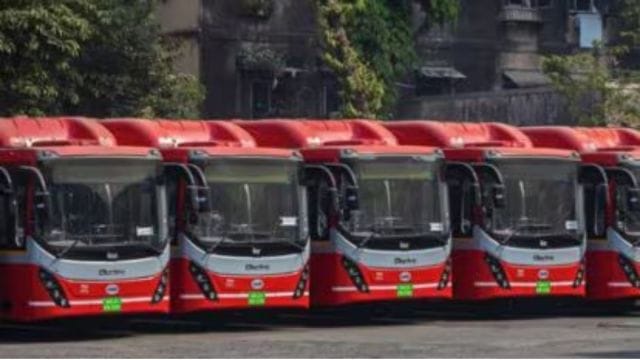Maharashtra faces alarming shortfall of 24,000 public buses
There are 44 cities in Maharashtra with populations exceeding two lakh, yet only 14 of these cities operate formal public bus services.
 The state requires at least 28,800 buses to bridge the gap and provide adequate transportation services for the needs of the city. (Express File Photo)
The state requires at least 28,800 buses to bridge the gap and provide adequate transportation services for the needs of the city. (Express File Photo)Maharashtra faces an alarming shortfall of 24,000 public buses, as revealed by a recent study conducted by the Institute for Transportation and Development Policy (ITDP) India. The report highlights a pressing need to expand the state’s urban bus fleet to meet the demands of the city’s 5.6 crore residents.
Currently, Maharashtra operates only 8,700 buses, with around 3,500 nearing the end of their operational life. The state requires at least 28,800 buses to bridge the gap and provide adequate transportation services for the needs of the city.
There are 44 cities in Maharashtra with populations exceeding two lakh, yet only 14 of these cities operate formal public bus services. This leaves 30 cities without any organised public transportation.
Even in cities where bus services are available, the fleet size falls far below “the Ministry of Housing and Urban Affairs’ benchmark of 40-60 buses per lakh population.” The average across these cities is only 15 buses per lakh, showing a dire pressing for an expanded fleet.
Mumbai, Pune, and Pimpri Chinchwad illustrate the extent of the problem. Mumbai operates 3,600 buses but requires at least 8,000, while Pune and Pimpri Chinchwad collectively need 4,500 buses, which is twice the size of their current fleet of 2,200.
In smaller cities like Chhatrapati Sambhajinagar, only 90 buses are operational, a fraction of the 1,000 needed to serve local commuters effectively.
The government’s PM e-Bus Sewa scheme has provided some relief in this regard, allocating 1,950 electric buses to 23 cities in Maharashtra. However, this covers less than 10% of the required 12,700 buses in Tier 2 and Tier 3 cities, illuminating the need for a stronger push at the state level.
Expanding Maharashtra’s bus fleet offers potentially significant environmental and economic benefits. Adding 24,000 buses could eliminate 19 lakh car trips and 30 lakh two-wheeler trips daily, easing congestion and cutting pollution. The report estimates an annual reduction of 30,000 tonnes of CO2 emissions, equivalent to planting nearly 5 lakh trees. Moreover, the initiative could create approximately 1.5 lakh jobs in the public transport sector while providing affordable transportation for over 5 crore citizens.
Experts have emphasized the importance of addressing the fleet deficit in the upcoming state budget. “Allocating Rs 1,000 crore to address 20% of the deficit through viability gap funding can make a significant difference,” said Aswathy Dilip, Managing Director, ITDP India. Such investments could enhance urban mobility, reduce private vehicle dependence, and make Maharashtra’s cities more sustainable, he added.
As cities expand and populations rise, ensuring reliable, affordable, and sustainable transportation is critical to enhancing the quality of life for millions of Maharashtra’s residents.







